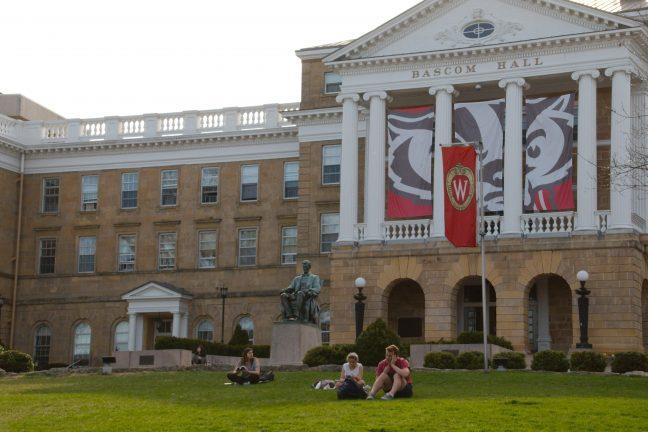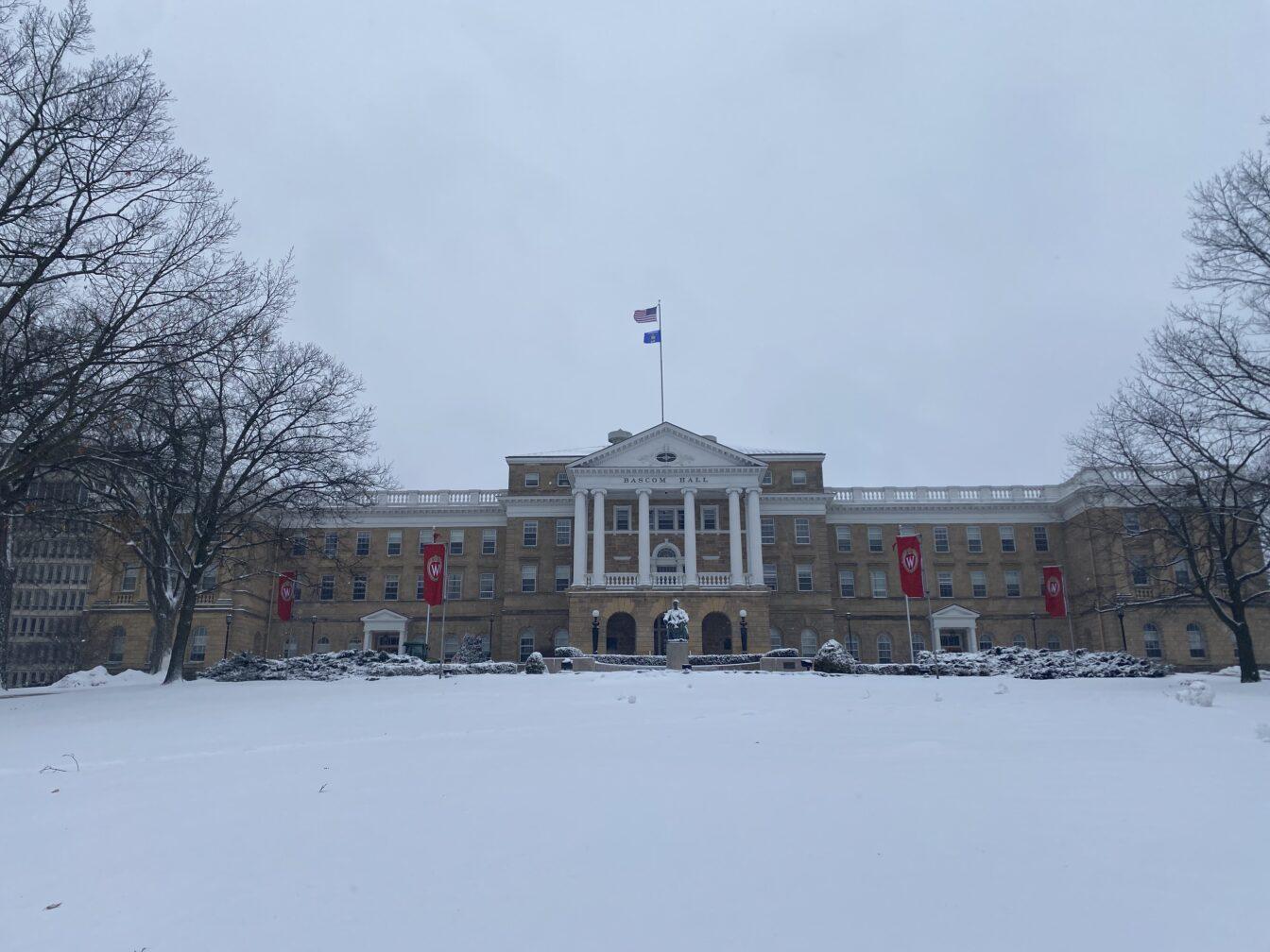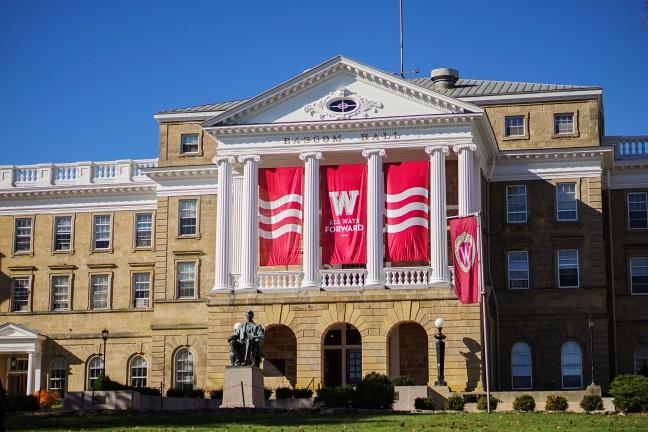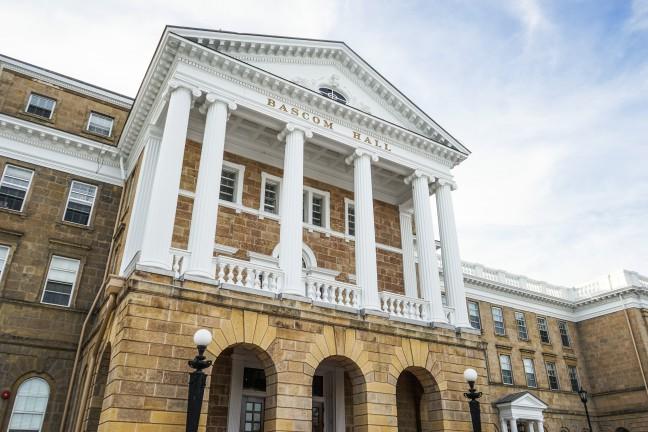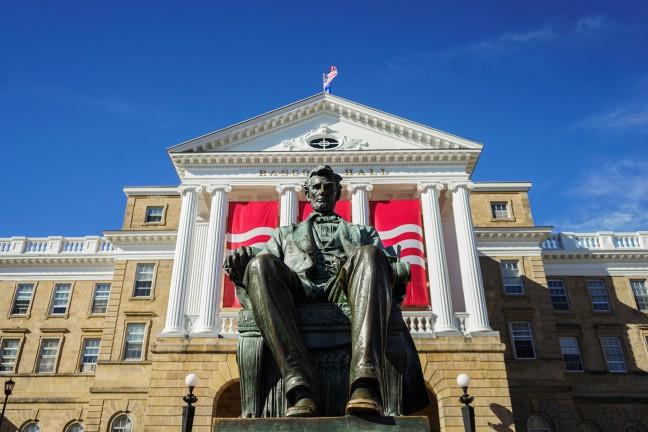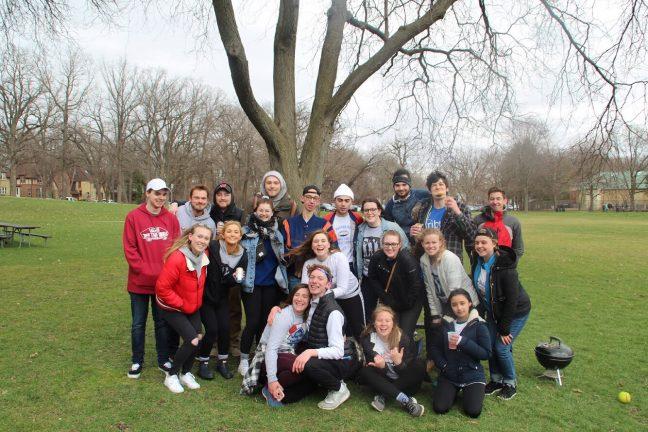The Badger Herald Editorial Board deemed the following stories important to watch throughout the semester.
UHS, SSFC and mental health

The story:
In February, the Student Services Finance Committee passed their University Health Service budget recommendations for 2020. The recommendations included hiring more mental healthcare staff, including at least one provider specialized in survivor resources, at least one focused on students of color and at least one focused on LGBTQ+ students. The committee also recommended UHS investigate the reason for their high staff turnover, asking for a full review and action plan to be completed by the end of fall 2019.
What to watch for:
SSFC is expecting action plans related to mental healthcare on campus from UHS and the Office of the Vice Chancellor for Student Affairs by the end of this semester. As SSFC and ASM continue to work toward improved resources for these issues, watch for how UHS adjusts their programming and how UW responds to the need for mental health resources.
Blue lights and campus safety

The story:
UWPD recently announced plans to investigate the efficacy of blue lights on campus. They said that last year, they did not receive a single emergency call from blue lights, and in fact, most were actually prank calls. Given that they don’t seem to be providing students a necessary service, the department is questioning whether the cost of maintaining the lights is worth it.
What to watch for:
How will this play with students and parents? Although they aren’t being used with a high level of frequency in the way they’re intended to be used, having blue lights on campus arguably does instill a sense of security for students, and removing them would seem to corrode campus’ sense of safety, even if only for appearances. Should they remove the blue lights, UWPD will need to allocate the money they save toward newer, more innovative ways of promoting safety — like investigating how to beneficially make use of modern technology. The UW campus is certainly not crime-free, so if UWPD intends to remove a resource designed to protect students, they must commit to replacing it with something better.
Sexual harassment policy on campus

The story:
In April, the UW System announced its plans to join a national movement to address sexual harassment in higher education. UW-Madison is collaborating with more than two dozen other higher education institutions to raise awareness about sexual harassment and how it occurs, elevate evidence-based institutional policies and strategies to reduce and prevent sexual harassment, contribute to setting the research agenda related to the issue, and develop a standard for measuring progress toward reducing and preventing sexual harassment in higher education. The chancellors of all 13 UW institutions have signed on to this project.
What to watch for:
What steps will Chancellor Rebecca Blank take to implement these changes here in Madison? Just this summer, UW professor and neurologist Rama Maganti was sued for sexual exploitation and malpractice — that, along with Quintez Cephus’ recent trial, acquittal and readmittance to the University has brought issues of sexual harassment and assault to the forefront of Badgers’ minds. Students and faculty alike are eager to see what the administration intends to do to address sexual harassment on campus.
Rhodes-Conway and Madison police

The story:
In July, Mayor Satya Rhodes-Conway reached 100 days in office and said she is happy with the way things have been going so far. Aside from the issues which drove her campaign, Rhodes-Conway has been working to improve police practices in Madison. By increasing police presence in heavily trafficked areas, such as the upper blocks of State Street, Rhodes-Conway hopes to address crime rates and other illegal behavior. Rhodes-Conway is always working to improve how law enforcement handles mental health — an issue catalyzed by a video of a confrontation between police officers and a 17-year-old black teenager, in which the officers appear to slam the boy into a wall before taking him into custody. Rhodes-Conway was critical of the response in a blog post earlier this summer, something which Madison Professional Police Officers Association President Kelly Powers said was “extraordinarily disappointing.”
What to watch for:
How will this relationship between the Mayor and the Police Department develop as Rhodes-Conway simultaneously supports and critiques the department? This work with the police department has the potential to impact relationships between police and people of color in Madison, too. And with Rhodes-Conway’s commitment to “breaking up parties” in Madison, what impact will this have on UW students? As a school notorious for its party culture on campus, this police work is likely to extend to UW students in both on- and off-campus housing.
Madison’s growing pains

The story:
Madison is growing quickly — an exciting, yet challenging prospect. A higher population has led to rising rent prices, increased demand for public transportation and a need for accelerated environmental efforts. Madison’s spring elections for mayor and city council featured debates surrounding these issues, particularly for Rhodes-Conway and Ald. Avra Reddy.
What to watch for:
Rhodes-Conway in particular ran her campaign with a focus on the development of the Bus Rapid Transit system. The plan is well in the works, although the mayor has more work to do to solidify plans and get federal funding for the project.
Rhodes-Conway has also created a housing strategy team to look into increasing housing affordability in Madison, but as it stands, the mayor acknowledges that rent is still out of reach for many Madison residents. Watch for how the mayor and city council work to address these concerns as our city continues to develop and expand.
Hold my Juul!

The story:
Recently, people around the country have been diagnosed with severe, mysterious lung diseases linked to vaping. The actual medical impact of e-cigarettes, Juuls and the like isn’t certain at this point, but health officials are conducting extensive research into the potential dangers. Many of these diseases have been confirmed in Wisconsin.
What to watch for:
This story is actively unfolding, as there is much research left to be done and cases left to be diagnosed. As more information comes to light about the impact of vaping and e-cigarettes, watch for advisories from health officials, as well as increased legislation regulating the use and distribution of the devices.
Brace yourselves, the 2020 election is coming

The story:
We know you’re probably still recovering from the 2016 election cycle — we definitely are — but the 2020 election is fast approaching. And with the Democratic National Convention in Wisconsin this year, our state is set to play a big role on the campaign trails of many candidates. Several candidates, including Sen. Elizabeth Warren, Sen. Bernie Sanders, former U.S. Rep. Beto O’Rourke and President Donald Trump have already made stops in Wisconsin, and preparations for the DNC are well underway.
What to watch for:
How will candidates campaign to voters in Wisconsin? Many Wisconsin Democrats are still uneasy about how the 2016 election played out here, so what will 2020 candidates do to cater to voters and assuage those anxieties? Additionally, look out for how candidates address student voters, specifically with plans to address student loan debt and minimum wage hikes.
And finally, how will preparations for the DNC impact Wisconsinites? With around 50,000 people — including media, donors, activists and volunteers — slated to come to Milwaukee next July, hotel reservations for the convention extend to Madison and northern Illinois. Will holding the convention in Milwaukee prove effective, or is just going to turn out to be a logistical nightmare?
Rep. Duffy’s resignation

The story:
U.S. Rep. Sean Duffy, R-Hayward, announced last week he is resigning from Congress, effective September 23. Duffy, who has represented Wisconsin’s 7th District since 2011, says he is stepping down to devote more time to his family — he and his wife are expecting a baby in October, who, among other complications, has a heart condition. To fill Duffy’s seat, Gov. Tony Evers is currently reviewing potential dates for a special election.
What to watch for:
Will the special election flip this seat? Among the Democrats likely to seek it are Rep. Nick Milroy, D-South Range, and Sen. Janet Bewley, D-Ashland. District 7 is one of the most evenly balanced in the nation, and it was held by a Democrat for 42 years before Duffy was elected, so it will be interesting to see if the northwest stays red or goes back to blue.
Free speech is up for debate

The story:
Two Wisconsin Republican legislators recently resurrected a campus free speech bill which aims to discipline actions by constituents who work to disrupt free speech by campus speakers, students and faculty. The Badger Herald Editorial Board wrote all about it, so check that out for our thoughts on the matter. Nevertheless, this story is sure to see a host of interesting developments as lawmakers work to gain support for their anti-free speech, free speech bill.
What to watch for:
Earlier this month, the conservative think-tank MacIver Institute filed a lawsuit against Gov. Tony Evers, alleging he and his office have violated the First Amendment by excluding the outlet from media events. These two situations are the latest in a series of allegations about First Amendment violations from conservative groups in Wisconsin. Typically thought of as bastions of liberal, progressive thought, a university campus will be an exciting place to watch these issues unfold. Look out for how conservative and liberal groups on campus approach issues of free speech, and don’t be afraid to call out hate speech when you see it. Protest is free speech, too.
If the topic of free speech is of particular interest to you, come join us. The Badger Herald is an experiment in student media, and we are tirelessly committed to the importance of telling the truth and sharing stories that matter to students. If you’d like to get involved with us this semester, whether it’s as a reporter, columnist, photographer, videographer, designer, coder or copy editor, stop by our get involved meetings in the fall or send an email to [email protected].
The Editorial Board serves to represent the voice of the Badger Herald editorial department, distinct from the newsroom, and does not necessarily reflect the views of each staff member.








